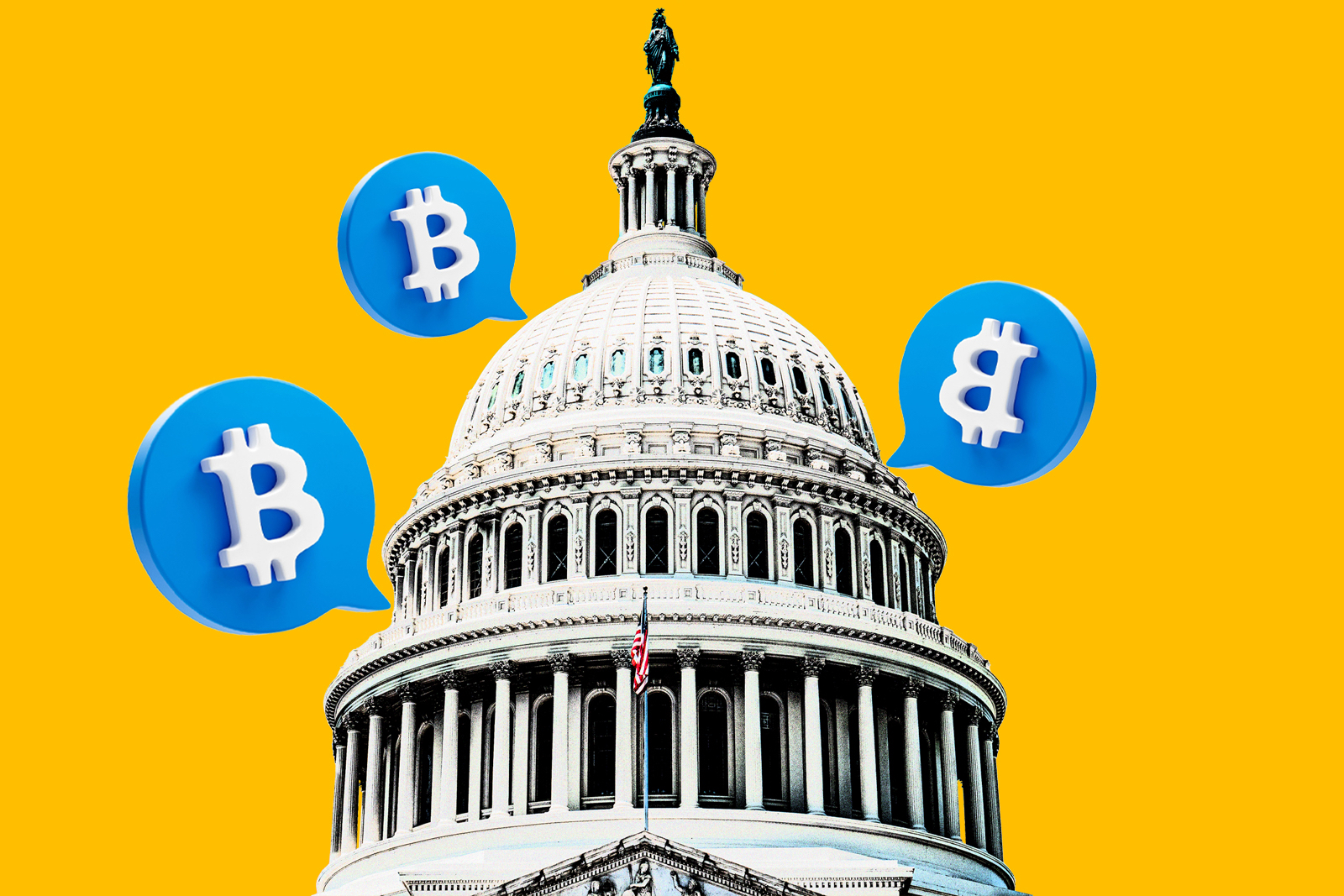Regulation
The hope of the crypto industry or Pandora’s box?

THE cryptocurrency The world is abuzz with the passage of the Financial Innovation and Technology for the 21st Century Act, commonly known as FIT21, which recently gained a bipartisan majority in the House. Considered a historic legislative measure, FIT21 aims to redefine the regulatory landscape for cryptocurrencies in the USA. Yet behind this façade of progress lies a complex web of implications that merit closer examination.
To understand the importance of FIT21, it is essential to understand the regulatory terrain it seeks to transform. Cryptocurrencies have long operated in a legal gray area, with the United States Securities and Exchange Commission (SEC) playing a central role in determining their regulatory status. Under the current framework, many cryptocurrencies are classified as securities, subjecting them to strict regulatory requirements intended to protect investors.
FIT21 proposes a step change by transferring regulatory authority from the SEC to the U.S. Commodity Futures Trading Commission (CFTC). This change would allow cryptocurrencies to be treated more like commodities than investment contracts. Supporters argue that the move would provide the regulatory clarity and flexibility needed to foster innovation and growth within the crypto industry.
The industry has hailed FIT21 as a monumental leap forward. By easing regulatory constraints, the bill promises to unleash a wave of innovation and investment. Companies would have greater freedom to develop new products and services without constant fear of violating SEC regulations. This in turn could attract more capital and talent to the industry, boosting economic growth and technological progress.
Additionally, classifying cryptocurrencies as commodities aligns with the decentralized philosophy of the crypto community. Unlike securities, which are typically issued by centralized entities, cryptocurrencies are often created and managed by decentralized networks. The commodity classification recognizes this fundamental difference and provides a regulatory framework better suited to the unique nature of these digital assets.
While the benefits of FIT21 are clear, the bill also raises several troubling issues that have not been adequately addressed. One of the main concerns is the possibility of increased market volatility. Cryptocurrencies are known for their price fluctuations, and a relaxation of regulatory oversight could exacerbate this volatility. Without strong investor protections, retail investors could become more vulnerable to market manipulation and fraud.
Another important issue is the transfer of regulatory authority from the SEC to the CFTC. The move is widely seen as a response to SEC Chairman Gary Gensler’s strict stance on cryptocurrencies. Gensler argued that many cryptocurrencies are considered securities and should be regulated accordingly to protect investors. By transferring authority to the CFTC, FIT21 undermines this perspective, potentially weakening investor protections.
Additionally, the CFTC may not be sufficiently equipped to handle the regulatory complexities of the crypto market. Historically, the CFTC has focused on regulating commodity futures and derivatives, areas that differ significantly from the intricacies of digital currencies. Critics say the CFTC lacks the resources and expertise to effectively oversee the rapidly evolving crypto landscape.
One of the most pressing concerns about FIT21 is its potential to exacerbate market volatility. Cryptocurrencies are inherently volatile, with their prices subject to dramatic swings based on market sentiment, technological developments and regulatory news. Easing securities regulations could lead to a more speculative market, attracting investors seeking quick profits rather than long-term value.
This speculative environment could increase the risk of market manipulation. Without the strict oversight provided by the SEC, bad actors may find it easier to engage in pump-and-dump schemes, in which the price of a cryptocurrency is artificially inflated before being sold for a profit. Such schemes can result in significant financial losses for unsuspecting investors, thereby undermining confidence in the market.
Investor protection is another crucial issue. The SEC’s regulatory framework is designed to protect investors by ensuring transparency, accountability and fair business practices. By shifting authority to the CFTC, FIT21 could weaken these protections, leaving investors more exposed to fraud and malpractice. Retail investors, in particular, could be most affected by this regulatory change, as they are often less experienced and more sensitive to high-risk investments.
The transfer of regulatory authority from the SEC to the CFTC is not a simple bureaucratic maneuver; this is a strategic decision with significant implications. SEC Chairman Gary Gensler is a strong advocate for treating many cryptocurrencies as securities, arguing that they meet the criteria established by the Howey test, a legal standard used to determine whether an asset qualifies as a security. as an investment contract.
Gensler’s strict approach has been met with resistance from the crypto industry, which views his stance as too restrictive and stifling to innovation. FIT21 can be seen as a form of retaliation against Gensler’s regulatory agenda, shifting authority to a more lenient regulatory body. However, this change raises questions about the motivations behind the bill and whether it actually serves the best interests of the market and investors.
The CFTC’s role in regulating commodities is well established, but its ability to oversee the complex and rapidly evolving crypto market is less certain. Cryptocurrencies operate on decentralized networks, with unique technological and economic characteristics that differ from traditional commodities like oil or wheat. The CFTC’s regulatory framework may not be suited to address these nuances, which could lead to oversight gaps.
Additionally, the CFTC’s resources are already limited. The agency has a relatively small budget compared to that of the SEC, and adding responsibility for regulating cryptocurrencies could further strain its capacity. Effective regulation requires not only strong legal frameworks, but also the resources and expertise to enforce them. Without adequate funding and staffing, the CFTC could struggle to keep pace with the dynamic crypto market.
Beyond the immediate impact on market volatility and investor protection, FIT21 has broader implications for the future of cryptocurrency regulation. The bill represents a significant change in how digital assets are viewed and treated under U.S. law. By classifying cryptocurrencies as commodities, FIT21 recognizes their unique nature and the need for a tailored regulatory approach.
This change also sets a precedent for future regulatory developments. Other jurisdictions may look to FIT21 as a model for their own regulatory frameworks, which could lead to a more fragmented global regulatory landscape. This fragmentation could create challenges for businesses operating in multiple jurisdictions as they face different regulatory requirements and standards.
The bill also raises questions about the balance between innovation and regulation. While the crypto industry thrives on innovation, it also needs a stable and predictable regulatory environment to attract investment and build trust. Finding the right balance between promoting innovation and protecting investors is crucial to the long-term success of the sector.
As FIT21 moves closer to becoming law, it is essential to carefully consider its potential impact on the crypto market and the financial system as a whole. Policymakers must strike a delicate balance between promoting innovation and ensuring strong investor protections. This requires a nuanced understanding of the unique characteristics of cryptocurrencies and the risks they present.
One potential path forward is to develop a hybrid regulatory framework that leverages the strengths of the SEC and CFTC. Such a framework could provide the flexibility needed to support innovation while maintaining strong investor protections. For example, the SEC could continue to oversee initial coin offerings (ICOs) and other activities that resemble traditional securities offerings, while the CFTC could regulate trading and market activities more akin to commodities .
Collaboration between regulatory agencies is also crucial. By working together, the SEC and CFTC can share expertise, resources and information, ensuring a more comprehensive approach to regulation. This collaborative approach could help bridge the gap between regulatory frameworks and address the unique challenges posed by the crypto market.
Additionally, ongoing dialogue with industry stakeholders is essential. Policymakers should collaborate with crypto companies, investors and experts to understand the practical implications of regulatory changes and gather feedback on proposed measures. This inclusive approach can help ensure that regulations are well-informed, balanced and effective.
FIT21 represents a significant milestone for the crypto industry, promising greater regulatory clarity and flexibility. However, this also raises important concerns that need to be addressed to ensure a stable and secure market. By carefully considering the potential impact of the bill, policymakers can strike a balance between promoting innovation and protecting investors.
Transferring regulatory authority from the SEC to the CFTC is a bold move, but it must be accompanied by adequate resources and expertise to ensure effective oversight. Collaboration between regulatory agencies and ongoing dialogue with industry stakeholders will be crucial to navigating the complex and rapidly evolving crypto landscape.
Ultimately, the success of FIT21 will depend on its ability to create a regulatory environment that supports innovation while protecting investors’ interests. With cautious optimism and a commitment to thoughtful regulation, the crypto industry can continue to thrive and contribute to the financial system as a whole.
If you are interested in writing for International Policy Digest, please email us via submissions@intpolicydigest.org
Regulation
Crypto community gets involved in anti-government protests in Nigeria

Amid the #EndBadGovernanceInNigeria protests in Nigeria, a notable shift is occurring within the country’s cryptocurrency sector. As the general public demands sweeping governance reforms, crypto community leaders are seizing the opportunity to advocate for specific regulatory changes.
Rume Ophi, former secretary of the Blockchain Stakeholders Association of Nigeria (SiBAN), stressed the critical need to integrate crypto-focused demands into the broader agenda of the protests.
Ophi explained the dual benefit of such requirements, noting that proper regulation can spur substantial economic growth by attracting investors and creating job opportunities. Ophi noted, “Including calls for favorable crypto regulations is not just about the crypto community; it’s about leveraging these technologies to foster broader economic prosperity.”
Existing government efforts
In opposition to Ophi’s call for action, Chimezie Chuta, chair of the National Blockchain Policy Steering Committee, presents a different view. He pointed out The Nigerian government continued efforts to nurture the blockchain and cryptocurrency industries.
According to Chuta, the creation of a steering committee was essential to effectively address the needs of the crypto community.
Chuta also highlighted the creation of a subcommittee to harmonize regulations for virtual asset service providers (VASPs). With the aim of streamlining operations and providing clear regulatory direction, the initiative involves cooperation with major organizations including the Securities and Exchange Commission (SEC) and the Central Bank of Nigeria (CBN). “Our efforts should mitigate the need for protest as substantial progress is being made to address the needs of the crypto industry,” Chuta said.
A united call for support
The ongoing dialogue between the crypto community and government agencies reflects a complex landscape of negotiations and demands for progress.
While actors like Ophi are calling for more direct action and the inclusion of crypto demands in protest agendas, government figures like Chuta are advocating for recognition of the steps already taken.
As protests continue, the crypto community’s push for regulatory reform highlights a crucial aspect of Nigeria’s broader fight to improve governance and economic policies. Both sides agree that favorable regulations are critical to the successful adoption and implementation of blockchain technologies, signaling a potentially transformative era for Nigeria’s economic framework.
Read also : OKX Exchange Exits Nigerian Market Amid Regulatory Crackdown
Regulation
Cryptocurrency Regulations in Slovenia 2024

Slovenia, a small but highly developed European country with a population of 2.1 million, boasts a rich industrial history that has contributed greatly to its strong economy. As the most economically developed Slavic nation, Slovenia has grown steadily since adopting the euro in 2007. Its openness to innovation has been a key factor in its success in the industrial sector, making it a prime destination for cryptocurrency enthusiasts. Many believe that Slovenia is poised to become a powerful fintech hub in Europe. But does its current regulatory framework for cryptocurrencies support such aspirations?
Let’s explore Slovenia’s cryptocurrency regulations and see if they can propel the country to the forefront of the cryptocurrency landscape. My expectations are positive. What are yours? Before we answer, let’s dig a little deeper.
1. Cryptocurrency regulation in Slovenia: an overview
Slovenia is renowned for its innovation-friendly stance, providing a supportive environment for emerging technologies such as blockchain and cryptocurrencies. Under the Payment Services and Systems Act, cryptocurrencies are classified as virtual assets rather than financial or monetary instruments.
The regulation of the cryptocurrency sector in Slovenia is decentralized. Different authorities manage different aspects of the ecosystem. For example, the Bank of Slovenia and the Securities Market Agency oversee cryptocurrency transactions to ensure compliance with financial laws, including anti-money laundering (AML) and terrorist financing regulations. The Slovenian Act on the Prevention of Money Laundering and Terrorist Financing (ZPPDFT-2) incorporates the EU’s 5th Anti-Money Laundering Directive (5MLD) and aligns with the latest FATF recommendations. All virtual currency service providers must register with the Office of the Republic of Slovenia.
2. Cryptocurrency regulation in Slovenia: what’s new?
Several notable developments have taken place this year in the cryptocurrency sector in Slovenia:
July 25, 2024:Slovenia has issued a €30 million on-chain digital sovereign bond, the first of its kind in the EU, with a yield of 3.65%, maturing on 25 November 2024.
May 14, 2024:NiceHash has announced the first Slovenian Bitcoin-focused conference, NiceHashX, scheduled for November 8-9 in Maribor.
3. Explanation of the tax framework for cryptocurrencies in Slovenia
The Slovenian cryptocurrency tax framework provides clear guidelines for individuals and businesses. According to the Slovenian Financial Administration, the tax treatment depends on the status of the trader and the nature of the transaction.
- People:Income earned from cryptocurrencies through employment or ongoing business activities is subject to personal income tax. However, capital gains from transactions or market fluctuations are exempt from tax.
- Companies:Capital gains from cryptocurrency-related activities are subject to a 19% corporate tax. Value-added tax (VAT) generally applies at a rate of 22%, although cryptocurrency transactions that are considered as means of payment are exempt from VAT. Companies are not allowed to limit payment methods to cryptocurrencies alone. Tokens issued during ICOs must follow standard accounting rules and corporate tax law.
4. Cryptocurrency Mining in Slovenia: What You Need to Know
Cryptocurrency mining is not restricted in Slovenia, but income from mining is considered business income and is therefore taxable. This includes rewards from validating transactions and any additional income from mining operations. Both individuals and legal entities must comply with Slovenian tax regulations.
5. Timeline of the development of cryptocurrency regulation in Slovenia
Here is a timeline highlighting the evolution of cryptocurrency regulations in Slovenia:
- 2013:The Slovenian Financial Administration has issued guidelines stating that income from cryptocurrency transactions should be taxed.
- 2017:The Slovenian Financial Administration has provided more detailed guidelines on cryptocurrency taxation, depending on factors such as the status of the trader and the type of transaction.
- 2023:The EU adopted the Markets in Crypto-Assets (MiCA) Regulation, establishing a uniform regulatory framework for crypto-assets, their issuers and service providers across the EU.
Endnote
Slovenia’s approach to the cryptocurrency sector is commendable, reflecting its optimistic view of the future of cryptocurrencies. The country’s balanced regulatory framework supports cryptocurrency innovation while protecting users’ rights and preventing illegal activities. Recent developments demonstrate Slovenia’s commitment to continually improving its regulatory environment. Slovenia’s cryptocurrency regulatory framework sets a positive example for other nations navigating the evolving cryptocurrency landscape.
Read also : Hong Kong Cryptocurrency Regulations 2024
Regulation
A Blank Sheet for Cryptocurrencies: Kamala Harris’ Regulatory Opportunity

photo by Shubham Dhage on Unsplash
As the cryptocurrency landscape continues to evolve, the need for clear regulation has never been more pressing.
With Vice President Kamala Harris now leading the charge on digital asset regulation in the United States, this represents a unique opportunity to start fresh. This fresh start can foster innovation and protect consumers. It can also pave the way for widespread adoption across industries, including real estate agencies, healthcare providers, and online gaming platforms like these. online casinos ukAccording to experts at SafestCasinoSites, these platforms come with benefits such as bonus offers, a wide selection of games, and various payment methods. Ultimately, all this increase in adoption could propel the cryptocurrency market forward.
With this in mind, let’s look at the current state of cryptocurrency regulation in the United States, a complex and confusing landscape. Multiple agencies, including the Securities and Exchange Commission (SEC), the Commodity Futures Trading Commission (CFTC), and the Financial Crimes Enforcement Network (FinCEN), have overlapping jurisdictions, creating a fragmented regulatory environment. This lack of clarity has stifled innovation as companies are reluctant to invest in the United States, fearing regulatory repercussions. A coherent and clear regulatory framework is urgently needed to realize the full potential of cryptocurrencies in the United States.
While the US struggles to find its footing, other countries, such as Singapore and the UK, are actively looking into the cryptocurrency sector by adopting clear and supportive regulatory frameworks. This has led to a brain drain, with companies choosing to locate in more conducive environments.
Vice President Kamala Harris has a unique opportunity to change that narrative and start over. Regulation of cryptocurrencies. By taking a comprehensive and inclusive approach, it can help create a framework that balances consumer protection with innovation and growth. The time has come for clear and effective regulation of cryptocurrencies in the United States.
Effective regulation of digital assets is essential to foster a safe and innovative environment. The key principles guiding this regulation are clarity, innovation, global cooperation, consumer protection, and flexibility. Clear definitions and guidelines eliminate ambiguity while encouraging experimentation and development to ensure progress. Collaboration with international partners establishes consistent standards, preventing regulatory arbitrage. Strong safeguards protect consumers from fraud and market abuse, and adaptability allows for evolution in response to emerging trends and technologies, striking a balance between innovation and protection.
The benefits of effective cryptocurrency regulation are multiple and far-reaching. By establishing clear guidelines, governments can attract investors and mainstream users, driving growth and adoption. This can, in turn, position countries like the United States as global leaders in fintech and innovation. Strong safeguards will also increase consumer confidence in digital assets and related products, increasing economic activity.
A thriving crypto industry can contribute significantly to GDP and job creation, which has a positive impact on the overall economy. Furthermore, effective regulation has paved the way for the growth of many businesses such as tech startups, online casinos, and pharmaceutical companies, demonstrating that clear guidelines can open up new opportunities without stifling innovation. This is a great example of how regulation can allay fears of regressive policies, even if Kamala Harris does not repeal the current progressive approach. By adopting effective regulation, governments can create fertile ground for the crypto industry to thrive, thereby promoting progress and prosperity.
Regulation
South Korea Imposes New ‘Monitoring’ Fees on Cryptocurrency Exchanges

Big news! The latest regulatory changes in South Korea are expected to impact major cryptocurrency exchanges like Upbit and Bithumb. Under the updated regulations, these platforms will now have to pay monitoring fees, which could cause problems for some exchanges.
Overview of new fees
In the latest move to regulate cryptocurrencies, the Financial Services Commission announced on July 1 the revised “Enforcement Order of the Act on the Establishment of the Financial Services Commission, etc.” update “Regulations on the collection of contributions from financial institutions, etc.” According to local legislation newsThe regulations require virtual asset operators to pay supervisory fees for inspections conducted by the Financial Supervisory Service starting next year. The total fees for the four major exchanges are estimated at around 300 million won, or about $220,000.
Apportionment of costs
Upbit, which holds a dominant market share, is expected to bear more than 90% of the total fee, or about 272 million won ($199,592) based on its operating revenue. Bithumb will pay about 21.14 million won ($155,157), while Coinone and GOPAX will contribute about 6.03 million won ($4,422) and 830,000 won ($608), respectively. Korbit is excluded from this fee due to its lower operating revenue.
Impact on the industry
The supervision fee will function similarly to a quasi-tax for financial institutions subject to inspections by the Financial Supervisory Service. The new law requires any company with a turnover of 3 billion won or more to pay the fee.
In the past, fees for electronic financial companies and P2P investment firms were phased in over three years. However, the taxation of virtual asset operators has been accelerated, reflecting the rapid growth of the cryptocurrency market and increasing regulatory scrutiny.
Industry reactions
The rapid introduction of the fee was unexpected by some industry players, who had expected a delay. Financial Supervisory Service officials justified the decision by citing the creation of the body concerned and the costs already incurred.
While larger exchanges like Upbit and Bithumb can afford the cost, smaller exchanges like Coinone and GOPAX, which are currently operating at a loss, could face an additional financial burden. This is part of a broader trend of declining trading volumes for South Korean exchanges, which have seen a 30% drop since the new law went into effect.
-

 Regulation11 months ago
Regulation11 months agoRipple CTO and Cardano founder clash over XRP’s regulatory challenges ⋆ ZyCrypto
-

 Regulation9 months ago
Regulation9 months agoNancy Pelosi Considers Supporting Republican Crypto Bill FIT21 – London Business News
-

 Videos11 months ago
Videos11 months agoCryptocurrency News: Bitcoin, ETH ETF, AI Crypto Rally, AKT, TON & MORE!!
-

 Regulation11 months ago
Regulation11 months agoBitcoin’s future is ‘bleak’ and ripe for regulation, says lead developer
-

 News8 months ago
News8 months agoAave Price Increases Following Whales Accumulation and V3.1 Launch
-

 Regulation8 months ago
Regulation8 months agoA Blank Sheet for Cryptocurrencies: Kamala Harris’ Regulatory Opportunity
-

 Regulation8 months ago
Regulation8 months agoSouth Korea Imposes New ‘Monitoring’ Fees on Cryptocurrency Exchanges
-

 Regulation8 months ago
Regulation8 months agoCryptocurrency Regulations in Slovenia 2024
-

 News11 months ago
News11 months agoThe trader earned $46 million with PEPE after reaching a new ATH
-

 Regulation10 months ago
Regulation10 months agoCrypto needs regulation to thrive: Tyler Cowen
-

 Blockchain10 months ago
Blockchain10 months agoSolana ranks the fastest blockchain in the world, surpassing Ethereum, Polygon ⋆ ZyCrypto
-

 Blockchain10 months ago
Blockchain10 months agoSolana Surpasses Ethereum and Polygon as the Fastest Blockchain ⋆ ZyCrypto
















